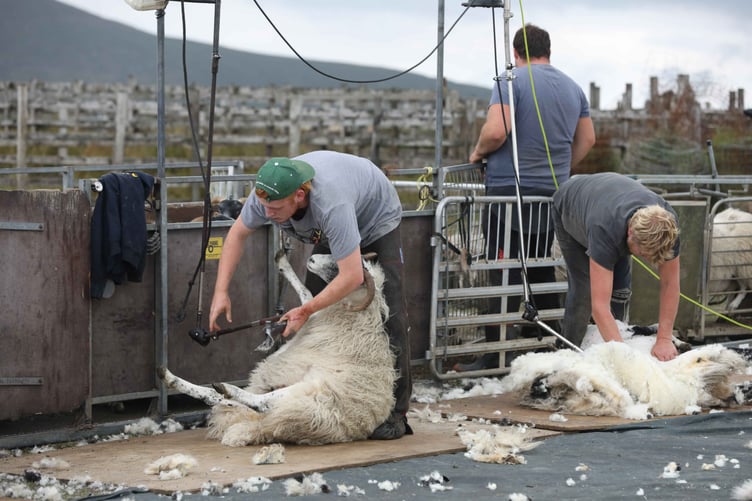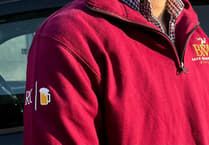Tiring of the current wool situation, as reported on the Examiner’s farming pages recently, Crosby farmer Danny Creer, working with a few other farmers, has obtained a licence to export their own wool.
This means that rather than send it to the Department of the Environment, Food and Agriculture-preferred UK dealer, Branach Olan, they are sending it direct to British Wool. They have already sent two loads off the island.
The farmers have an ongoing issue with payments for the wool they have been sending to Branach Olan and decided to take matters into their own hands.
Danny told Food & Farming: ‘We’re with British Wool. They might not always pay the best but they put a lot back into the industry. If DEFA were to start using them again they would run sheep shearing courses on the island.’
Danny added that any other farmers wanting to join in the venture are welcome to get in touch with him.
He said: ‘We compress it and send it over to British Wool who will grade it. They will sell all the Manx wool together because apparently it’s got a bit of a following.’
A spokesman for British Wool said: ‘The arrangement is working well, and we will be grading the wool we have received over the next week.
‘We do put a lot back into the industry and training around 800 shearers every year is a big part of this.
‘We are currently in dialogue about the possibility of running a course on the Isle of Man in the coming season. We also do a lot of work with brands and consumers, trying to drive front end demand for our members’ wool, through PR, social media, and our on-line shop etc.
‘There has always been a decent demand for Manx wool, and we will be targeting brands who we feel might be interested in the type of wool produced in the Isle of Man and the associated provenance angle over the coming months.’
Branach Olan told us that the payment issues have been caused by a difficulty in being able to get farmers’ bank details in order to pay them.
Why do we shear sheep?
As the weather warms up, farmers on the island will soon be starting to shear their sheep.
Nowadays, as the commercial value of wool barely covers the cost of shearing, this is done primarily for welfare reasons.
Sheep grow wool continuously to protect them from the weather.
Wool is a natural product of the sheep’s life cycle and the welfare of sheep is improved by them being shorn every 12 months.
Shearing keeps sheep cool in the warmer months and reduces the risk of parasitic infestation and disease.
Flystrike is one of these.
In warm weather flies will lay their eggs in the fleece and, after hatching, the maggots bury themselves under the sheep’s skin, feeding off their flesh.
This can lead to infected wounds and, in extreme cases, death.
Removing the fleece considerably reduces the risk of diseases of this nature because it removes a potential breeding ground for the insects.

.jpeg?width=209&height=140&crop=209:145,smart&quality=75)


-(1).JPG?width=209&height=140&crop=209:145,smart&quality=75)
Comments
This article has no comments yet. Be the first to leave a comment.